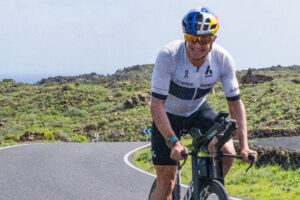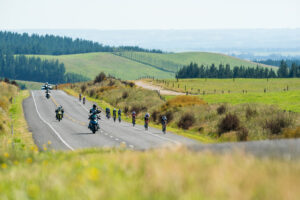Rapp on the dais

[The following is Jordan Rapp's speech from the 2011 Ironman Canada Awards Banquet, held on the Monday evening after the race.]
Reading a book about the progress of science over the 20th century, I came upon the Latin phrase, “ad astra per aspera,” (apparently, it’s the Star Trek Starfleet motto) which translates as, “to the stars, through difficulty.” The basic phrase, “ad astra,” meaning, “to the stars,” is a common element (according to Wikipedia) in over 50 different mottos, including my personal favorite, found on the personal stamp of John Steinbeck, which (to save you the Latin), translates to, “to the stars on the wings of a pig.” The phrase has its roots in classical Latin literature in Virgil’s Aeneid and also in a poem about Hercules by Seneca the Younger, who wrote, “non est ad astra mollis e terris via,” which I translated as (thanks Mom & Dad for seven years of Latin…), “it is not an easy road from earth to the stars.” I think that, for everyone here, Ironman represents a star (or, for some of the crazies out there who’ve done some absurd number), an entire galaxy. The road to Ironman is not easy. And that is what makes it special.
I really should say it’s not easy “for most people.” If you are Mary Beth Ellis, it’s really easy. You do 3 Ironmans in 8 weeks and win them all. Way to totally torpedo my speech Mary Beth. But for the rest of us mere mortals, it’s an arduous journey, though it’s one that we share, making the solitary effort of the day seem like common ground, even if we don’t necessarily have common goals. The support of the crowds and the volunteers is as important and essential to me as it is to all of you.
I’ve ridden the Yellow Lake climb more times in training than I can count. Yesterday was my hardest trip up that climb, thanks to the unrelenting wind in the Similkameen Valley that had sapped my legs by the time I hit that intersection with Green Mountain Rd. But it also seemed like the shortest, though I know it wasn’t even close to my best time up that hill, and not just because I dropped my chain in a moment of Ironman‐induced idiocy; I guess it wasn’t meant to be a Yellow‐ Lake‐in‐the‐big‐ring kind of day. Maybe that was just a bit too much reaching for the stars.
The crowds of people out in the middle of nowhere had a long day supporting all of us on our equally long day; they made me, ever so briefly, forget the screaming in my quads and helped me to, at least for a moment, say, “shut up legs!” with some conviction. And on a day when Skaha Lake serves as nothing more than a continual tease, ceaselessly inviting you stop running and take a dip, I owe a huge debt to the volunteers with of ice chips who kept me from melting on the way back into town. And to everyone who took time out of his or her own race to cheer me on as I ran by you, thank you all as well. There’s a reason that Ironman started with a group – albeit a small one; it’s something that practically requires the presence of others, if only to have someone else to confirm that you actually did something so unbelievable. And, as seemingly common as it has become, at least within the triathlon community, Ironman is truly unbelievable. Of course, there are downsides to having crowds around; like when someone says, “hey, what were you wiping off your legs right before you came in the finishing chute?” Sorry about that. It mostly coke. I think…

For everyone in this room who isn’t an astronaut – you have to watch yourself with Ironman competitors; they are an eclectic and accomplished group – Ironman is the sort of momentous – but terrestrial – experience that allows us, ever so briefly, to get close enough to the stars to reach out and touch the heavens. Of course, some of that may just be the delirium of a 226 kilometer journey of swimming, biking, and running in a single day. But beyond any heat and gel induced hallucination, Ironman is truly a remarkable feat. I still laugh when people ask, “how many DAYS does that take you?”
As much as we might curse the wind, and the heat, and the seemingly endless miles when we are out there on the day, those very things are what bind us to this race and also to each other. Nobody gets together over a beer and recounts war stories like, “hey, remember that time we ran a 5k in totally perfect conditions?” Adversity is one of those things that truly implants a memory in our brain. According to Buddhism’s Four Noble Truths, the meaning of life itself is to suffer. I’m not sure I buy into that, even if it has resulted in some great Blues music over the years.
Personally, I prefer view of Viktor Frankl, the great Austrain psychiatrist and Holocaust survivor, that the meaning of life is to find meaning in our lives. I think the “to the stars” part is just as important as the “not easy” part. I don’t think anyone wants to go, through great difficulty, to the grocery store. I don’t think we want our lives, in general to be hard, though I don’t think we necessarily want life to be easy either. What I think drives us to seek out great challenges is that it is a choice that we make for ourselves. We don’t have control over the day, but we have control over our decision to pursue this epic journey. We all, for a variety of reasons, chose to wade into the lake with 3300 other people to undertake something that the typical person would call crazy.
But no one in this room has a burning desire to be, “typical.” That is not why you do an Ironman. You do an Ironman because you want to reach the stars. And you want to do it the hard way. Because that is what makes it special.






